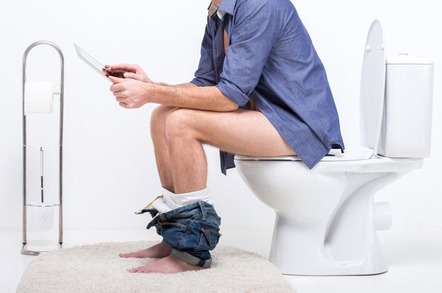
Breaking News
 Boots on the Ground...The news is getting worse so keep prepping.
Boots on the Ground...The news is getting worse so keep prepping.
 O'Keefe Media Group: Secret Service Agent Assigned to Vance Leaks Sensitive Information
O'Keefe Media Group: Secret Service Agent Assigned to Vance Leaks Sensitive Information
 Montana Program Makes Youth Offenders Talk with Their Victims and Recidivism Plummets
Montana Program Makes Youth Offenders Talk with Their Victims and Recidivism Plummets
 Gorgeous Bridge Allows for Walking and Biking Between US and Canada Set to Open in 2026
Gorgeous Bridge Allows for Walking and Biking Between US and Canada Set to Open in 2026
Top Tech News
 Superheat Unveils the H1: A Revolutionary Bitcoin-Mining Water Heater at CES 2026
Superheat Unveils the H1: A Revolutionary Bitcoin-Mining Water Heater at CES 2026
 World's most powerful hypergravity machine is 1,900X stronger than Earth
World's most powerful hypergravity machine is 1,900X stronger than Earth
 New battery idea gets lots of power out of unusual sulfur chemistry
New battery idea gets lots of power out of unusual sulfur chemistry
 Anti-Aging Drug Regrows Knee Cartilage in Major Breakthrough That Could End Knee Replacements
Anti-Aging Drug Regrows Knee Cartilage in Major Breakthrough That Could End Knee Replacements
 Scientists say recent advances in Quantum Entanglement...
Scientists say recent advances in Quantum Entanglement...
 Solid-State Batteries Are In 'Trailblazer' Mode. What's Holding Them Up?
Solid-State Batteries Are In 'Trailblazer' Mode. What's Holding Them Up?
 US Farmers Began Using Chemical Fertilizer After WW2. Comfrey Is a Natural Super Fertilizer
US Farmers Began Using Chemical Fertilizer After WW2. Comfrey Is a Natural Super Fertilizer
 Kawasaki's four-legged robot-horse vehicle is going into production
Kawasaki's four-legged robot-horse vehicle is going into production
 The First Production All-Solid-State Battery Is Here, And It Promises 5-Minute Charging
The First Production All-Solid-State Battery Is Here, And It Promises 5-Minute Charging
A 'smart' toilet could stop us from flushing away our most valuable health information...

*"Smart toilets" that track health could do a lot for patients, but so far we haven't seen the technology hit the mainstream.
*It's desperately needed, says this gastroenterologist-in-training.
*Let's stop flushing away vital health information.
Sameer Berry is currently a third-year resident physician at Cedars-Sinai Medical Center in Los Angeles.
As a gastroenterologist-in-training, here's an innovation I could use: A "smart" toilet.
What do I mean by that? Well, I'm not referring to those comfort-focused toilets with warm-water washing, air drying, and heated seats have been ubiquitous in Japan (and at Google's headquarters) for years. And I'm not talking about the hygiene-focused toilets that made recent news when Bill Gates announced a $200 million investment in toilet design to convert human waste into useable fertilizer and clean water. Although the latter is useful and needed, as the the improved sanitation could reduce infant deaths by 50,000 and save billions of dollars annually.
The smart toilet I'm referring to is a health-tracking toilet.
In my gastroenterology fellowship, I will treat diseases of the gut. I'd love to see the next generation of medical-technologists designing hardware with features to monitor and diagnose gastrointestinal disease. It's a hard problem for all sorts of reasons, but both doctors and patients could benefit if we figure out a way to stop flushing away some of our most vital health information.
The need for a "smart toilet"
Doctors realize that our patients will spend 99 percent of their time outside of our office. Yet most of the data we use to make decisions about their care is collected irregularly in clinics or hospitals.
In my view, understanding the status of a patient's day-to-day health outside of the clinic is key to having a holistic assessment of well-being and therefore delivering better care.
We've seen a lot of wearable devices emerge in the past decade. And the most recent crop of them are attempting to bridge this data gap by sharing medical information with physicians that goes beyond steps and calories. One example is AliveCor, which can record a medical-grade electrocardiogram (EKG) from a patient's smartphone to help detect abnormal heart rhythms. These medical technologies are aiming to get a better sense of people's health outside of the 0.1 percent of the patient's life spent in our office.
But so far, we don't have an equivalent technology for the human gut.
I see a big opportunity to apply these innovations in areas where patients feel a lot of stigma -- and bowel habits is a big one. It's also arguably among the most impactful and actionable data.

 Storage doesn't get much cheaper than this
Storage doesn't get much cheaper than this

